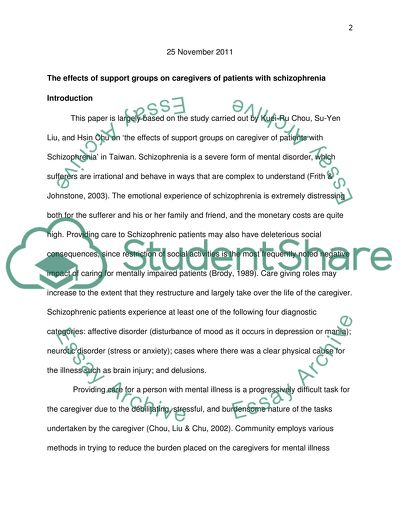Cite this document
(“The Effects of Support Groups on Caregivers of Patients With Essay”, n.d.)
Retrieved from https://studentshare.org/psychology/1437935-the-effects-of-support-groups-on-caregivers-of
Retrieved from https://studentshare.org/psychology/1437935-the-effects-of-support-groups-on-caregivers-of
(The Effects of Support Groups on Caregivers of Patients With Essay)
https://studentshare.org/psychology/1437935-the-effects-of-support-groups-on-caregivers-of.
https://studentshare.org/psychology/1437935-the-effects-of-support-groups-on-caregivers-of.
“The Effects of Support Groups on Caregivers of Patients With Essay”, n.d. https://studentshare.org/psychology/1437935-the-effects-of-support-groups-on-caregivers-of.


